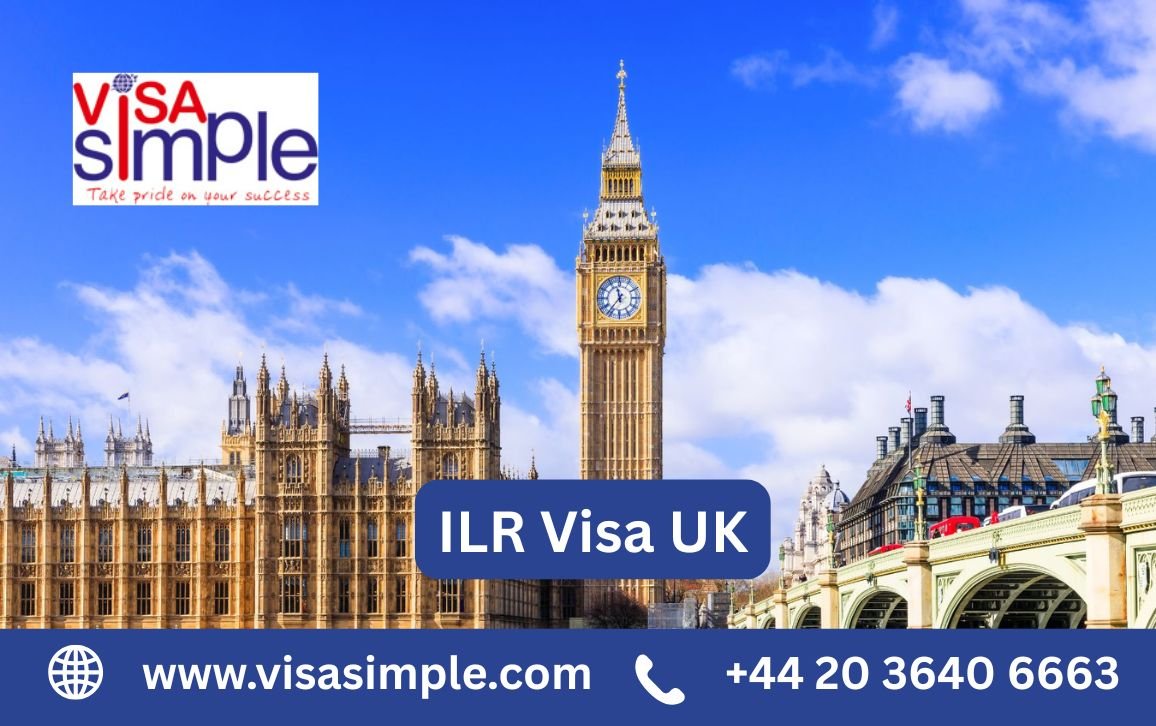Securing long-term residency in the United Kingdom is a goal for many individuals who have lived, worked, or studied in the country. The ILR Visa UK, also known as Indefinite Leave to Remain, offers a pathway for migrants to settle permanently, enjoy stability, and ultimately become eligible for British citizenship. For many, it represents the culmination of years of commitment and contribution to the UK.
At Visa Simple, we understand that navigating UK immigration law can feel complex. This guide breaks down the essential information about ILR applications, eligibility criteria, documentation, and common challenges, so applicants can approach the process with clarity and confidence.
What Is ILR in the UK?
Indefinite Leave to Remain (ILR) grants individuals the right to live, work, and study in the UK without time restrictions. It is not the same as British citizenship, but it is a critical step toward obtaining it. Once granted, ILR provides permanent residency rights, allowing individuals to build their lives securely in the UK.
Key benefits of ILR include:
Freedom from immigration restrictions
Access to healthcare, education, and public services
Opportunity to apply for British citizenship after a qualifying period
Who Can Apply for an ILR Visa UK?
Eligibility for ILR depends on various factors, including visa category, length of stay, and personal circumstances. The UK immigration system offers several pathways, such as:
1. Work-Based Routes
Migrants under skilled worker visas, Tier 2 visas, or similar categories may qualify for ILR after completing the required residency period. Demonstrating continuous lawful residence is crucial in these cases.
2. Family Routes
Spouses, partners, and dependents of British citizens or settled persons can apply for ILR after living in the UK for a qualifying period under family visas. This route requires proof of a genuine relationship and meeting financial and English language requirements.
3. Long Residence Applications
Applicants who have legally resided in the UK for at least 10 years may qualify under the long residence route. This is often an option for individuals who have maintained lawful status across different visa categories.
4. Other Categories
Refugees, individuals under humanitarian protection, and those with ancestry visas may also qualify for ILR. Each route has specific criteria set out under UK immigration rules.
Residency Requirements and Continuous Stay
One of the most important aspects of applying for ILR is meeting the residency requirement. Typically, applicants must not have spent more than 180 days outside the UK in any 12-month period during their qualifying stay. Gaps or excessive absences could lead to refusal, making it vital to track travel history carefully.
Visa Simple often advises applicants to maintain detailed records of travel dates, supporting documents, and reasons for any extended absences to strengthen their case.
Documentation Required for an ILR Visa UK
Preparing accurate and complete documentation is essential for a successful ILR application. Commonly required evidence includes:
A valid passport or travel document
Biometric residence permit
Proof of lawful residence (e.g., visa records, employment history)
Financial evidence where applicable
Proof of English language proficiency
Life in the UK Test pass certificate
Relationship or family documents for dependents
Submitting an incomplete application may result in delays or refusals, highlighting the importance of careful preparation.
The Life in the UK Test and English Language Requirement
Applicants must usually pass the Life in the UK Test, which evaluates knowledge of British culture, history, and values. In addition, most applicants must demonstrate proficiency in English through approved tests or qualifications.
These requirements are designed to ensure that individuals integrating into UK society have a strong understanding of local life and communication skills necessary for active participation.
ILR Application Process Explained
Applying for ILR involves several key steps:
Check Eligibility – Determine if your visa category and residency meet the criteria.
Prepare Documentation – Gather the required evidence, ensuring accuracy and consistency.
Complete the Online Application – Submit details through the official UK immigration system.
Biometric Appointment – Provide fingerprints, photographs, and supporting evidence at a visa application centre.
Wait for Decision – Processing times may vary depending on the complexity of the case.
Visa Simple guides clients through each stage, reducing the risk of errors and helping applicants approach the process with confidence.
Common Reasons for ILR Refusals
While many applicants succeed, ILR refusals do occur. Common reasons include:
Excessive absences from the UK
Incorrect or incomplete documentation
Failing the Life in the UK Test
Criminal convictions or breaches of immigration conditions
Discrepancies in financial or employment records
Understanding these pitfalls helps applicants prepare stronger cases and avoid costly mistakes.
Transition from ILR to British Citizenship
Holding ILR is often the final step before applying for British citizenship. After 12 months with ILR, most individuals may apply for naturalisation, provided they meet residency, good character, and language requirements.
This progression from ILR to citizenship provides individuals with the right to a British passport and full participation in civic life.
Expert Guidance from Visa Simple
The UK immigration landscape is constantly evolving, with frequent policy updates and complex legal requirements. At Visa Simple, we specialise in guiding applicants through every stage of the ILR process. Our team ensures that applications are handled with precision, reducing risks of delays or refusals and giving individuals peace of mind as they pursue permanent residency in the UK.
Practical Tips for a Successful ILR Application
Start preparing well in advance of your eligibility date
Keep records of visas, travel history, and employment details
Take the Life in the UK Test early to avoid delays
Double-check documentation before submission
Seek professional guidance if unsure about requirements
Being proactive and organised can make the difference between approval and refusal.
The Importance of Legal Accuracy in ILR Applications
Immigration law in the UK is technical, with requirements that can change quickly. Errors in applications can lead not only to refusals but also to longer-term consequences, such as difficulty in reapplying. Seeking expert advice ensures that the application reflects legal accuracy and strengthens the chances of success.
Conclusion
Applying for an ILR Visa UK is one of the most significant steps in an immigrant’s journey. It offers stability, security, and the ability to fully integrate into UK life, opening the door to citizenship. While the process can be challenging, being well-prepared and guided by professionals makes a substantial difference.
Visa Simple remains committed to helping individuals and families secure their settlement in the UK through clear, reliable, and professional immigration support. For anyone considering applying for ILR, the right preparation and expert guidance are key to achieving success.


